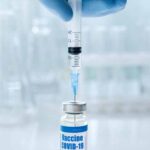The FDA has a responsibility to regularly review the appropriateness of an EUA, and as such, the agency will review emerging information associated with the emergency uses for the authorized products. Recent data from the U.S. Centers for Disease Control and Prevention’s (CDC) national genomic surveillance program show an increased frequency of SARS-CoV-2 variants that are expected to be resistant to bamlanivimab administered alone. As of mid-March 2021, approximately 20% of viruses sequenced in the U.S. were reported as variants expected to be resistant to bamlanivimab alone, increasing from approximately 5% in mid-January 2021.
Additionally, there are currently no testing technologies available that enable health care providers to test individual patients for SARS-CoV-2 viral variants prior to start of treatment with monoclonal antibodies. Therefore, empiric treatment with monoclonal antibody therapies that are expected to work broadly against variants across the nation should be used to reduce the likelihood of treatment failure.
The FDA will continue working closely with other federal governmental agencies, including the CDC and the National Institutes of Health, on the surveillance of variants that may impact the monoclonal antibody therapies authorized for emergency use. The agency remains committed to providing timely and transparent communication as additional information becomes available.


